Can Chickens Eat Bananas? The Do's and Don'ts of Feeding Chickens Bananas
Published: October 30, 2023
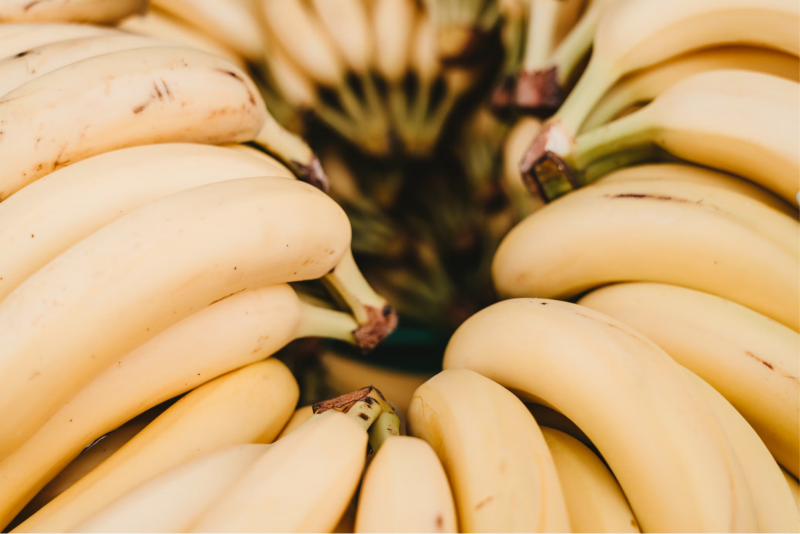
Welcome to our comprehensive guide on one of the most asked questions by chicken owners and enthusiasts: "Can chickens eat bananas?" Yes, chickens can eat bananas, but there is more to consider than just this simple answer.
As a chicken owner, you understand that the health and happiness of your feathered friends largely depend on their diet. Feeding your chickens a balanced diet is paramount, and understanding what they can and cannot eat is the first step toward ensuring their well-being. Among the various foods that spark curiosity, bananas often top the list. These sweet, tropical fruits are a human favorite, but are they safe for chickens? And if so, how should they be fed to your flock?
This blog post aims to shed light on these questions, providing a detailed guide on the do's and don'ts of feeding chickens bananas. By understanding the nutritional benefits and potential pitfalls, you will be equipped to make the best dietary decisions for your flock.
Stay with us as we peel back the layers on this topic, diving into the world of chickens and bananas. Whether you're a seasoned chicken owner or just starting your poultry journey, this guide is designed to be a valuable resource for you.
Can Chickens Eat Bananas?
Yes, chickens can eat bananas. These tropical treats can be a healthy addition to a chicken's diet, providing valuable nutrients and antioxidants. Bananas are rich in potassium, magnesium, and vitamins B and B6, contributing to chickens' overall health and well-being. Chickens often find bananas appealing and eagerly gobble them with their other treats. This makes bananas a fantastic choice when you're looking to diversify your flock's diet.
However, as with all treats, bananas should be given to chickens in moderation. Bananas have high sugar content, leading to weight gain and health problems such as heart disease and fatty liver disease if overfed. Feeding bananas to chickens once a week and in small portions is recommended, making up only about 5% of their weekly diet. By controlling portions and maintaining a balanced diet, you can ensure your chickens enjoy the benefits of bananas without the potential drawbacks.
Understanding Chicken's Dietary Needs
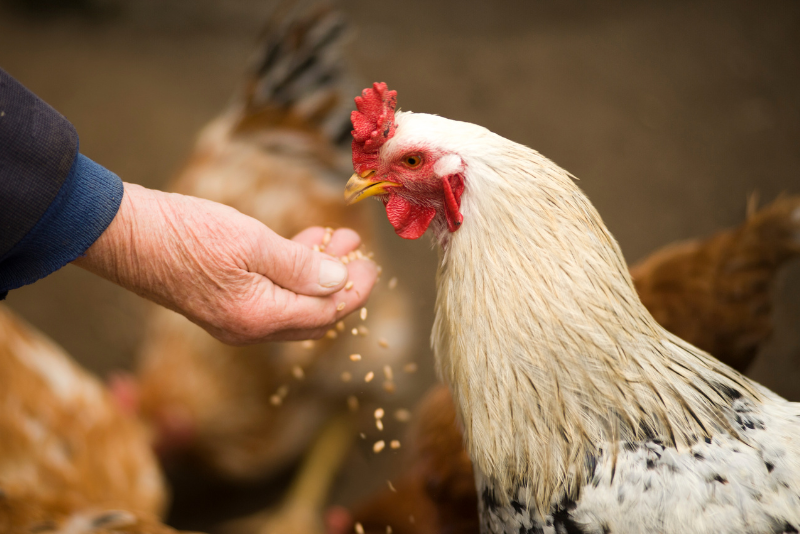
To fully appreciate the role of bananas and other treats in a chicken's diet, it's essential to understand their basic dietary needs. Chickens are omnivores, which means they eat a wide variety of foods, including plants, seeds, insects, and even small rodents. In a natural environment, chickens will spend their days foraging for these foods. However, in a domestic setting, it's the responsibility of the chicken owner to provide a balanced and nutritious diet.
A chicken's diet generally comprises commercial chicken feed formulated to meet nutritional requirements. This feed contains a balanced mix of grains, seeds, and essential nutrients, including proteins, carbohydrates, vitamins, and minerals. Protein is especially important as it supports growth, feather production, and egg production.
Adding to their diet, chickens also require grit (small pieces of rock or sand), which aids in the digestion of harder materials in their gizzard, and access to clean, fresh water at all times.
While commercial feed forms the basis of a chicken's diet, it doesn't mean that's all they should eat. Supplementing their diet with kitchen scraps, fruits, vegetables, and other treats like bananas can provide variety and additional nutrients. However, these should be considered treats and only comprise a small portion of their diet.
The importance of a balanced diet for chickens cannot be overstated. A well-balanced diet supports a chicken's health, productivity, and longevity. When their dietary needs are met, chickens are less likely to fall sick and more likely to lay healthy, high-quality eggs. Conversely, an unbalanced diet can lead to nutritional deficiencies or excesses, harming a chicken's health.
Remember, every treat you give your chickens, including bananas, should be given thoughtfully and in moderation, keeping their overall dietary needs in mind.
The Health Benefits of Bananas for Chickens
Bananas are not just delicious treats but also packed with various nutrients that can benefit your chickens. To understand how bananas can contribute to a chicken's health, let's take a look at their nutritional composition:
Potassium: Bananas are famously rich in potassium. This mineral is essential for maintaining fluid balance, heart health, and nerve function in chickens. It also aids in muscle movement and can contribute to stronger eggshells.
Vitamin B6 plays a vital role in brain development and function. It also helps the body make the hormones serotonin (which regulates mood) and melatonin (which helps regulate the body's clock).
Vitamin B: Also known as folate, this vitamin helps form red blood cells and develop the neural tube in chicks, making it crucial for breeding chickens.
Magnesium: This mineral helps in the biochemical reactions in the body, including protein synthesis, muscle and nerve function, and regulation of blood glucose levels.
Remember, while bananas provide these nutrients, they are not a substitute for a balanced chicken feed which provides a more comprehensive nutritional profile. Bananas should be seen as a supplement to their diet, providing additional nutrients and a tasty change from their regular feed.
Do's of Feeding Chickens Bananas
How to Properly Feed Bananas to Chickens
Feeding bananas to your chickens isn't complicated, but there are a few things you should keep in mind. First, ensure the bananas you're feeding are ripe, as chickens may find green bananas unappealing. Next, wash the bananas thoroughly to remove any pesticides or chemicals that could harm your chickens.
You can feed the bananas to your chickens whole, cut them into slices, or mashed.
How Often to Include Bananas in Their Diet
While bananas are beneficial, they should only make up a small portion of your chickens' diet. As a guideline, treats like bananas should make up no more than 5% of a chicken's weekly intake. This is because, despite their nutritional benefits, bananas have a high sugar content which could lead to health problems if overconsumed.
You can feed your chickens bananas once or twice a week, ensuring they have various other treats. Monitor your chickens after introducing bananas into their diet and adjust the frequency and quantity based on their health and behavior.
Best Practices for Using Bananas as a Treat
When using bananas as a treat, consider the following best practices:
Rotate bananas with other treats to provide a varied diet.
Never feed your chickens spoiled or moldy bananas, which could cause digestive issues.
Monitor your chickens for any behavior or egg production changes after introducing bananas. If you notice any negative changes, reducing or eliminating bananas from their diet might be best.
Remember to provide plenty of fresh water for your chickens, especially when feeding them dry treats like banana chips.
Feeding Banana Peels
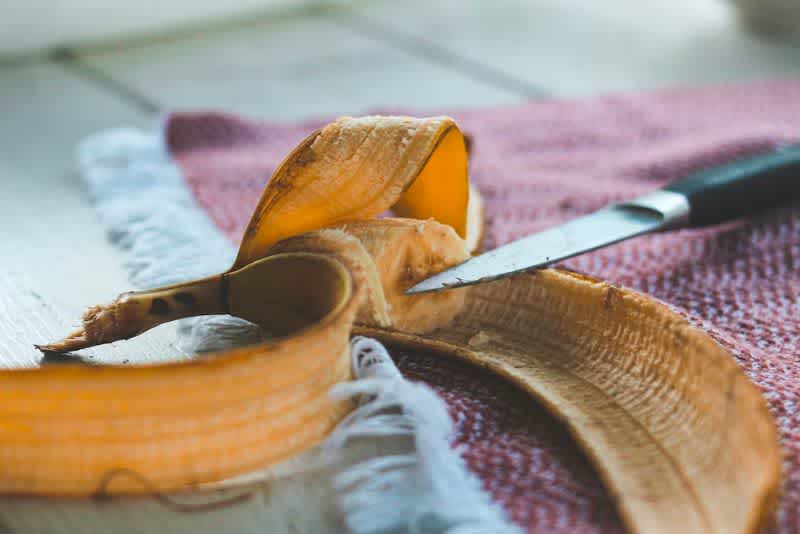
If you're feeding the peel, cut it into small pieces to prevent choking. Some chicken owners prefer to freeze banana slices during hot weather, providing their flock a cooling treat. Others boil the peels to make them softer and easier to eat.
Chop the Banana into Small Pieces
Feeding your chickens bananas by cutting the fruit into small, bite-sized pieces helps make it easier for them to consume the treat and significantly reduces the risk of choking. Chickens don't have teeth, so they rely on their gizzard to grind food. Smaller pieces ensure they can easily swallow and digest the bananas without any issues.
To chop the banana, first, remove the peel. Then, use a knife to slice the banana into thin rounds or small chunks. These smaller pieces will be more manageable for your chickens, allowing them to enjoy this tasty and nutritious treat safely.
Mix Bananas with other Fruits and Vegetables
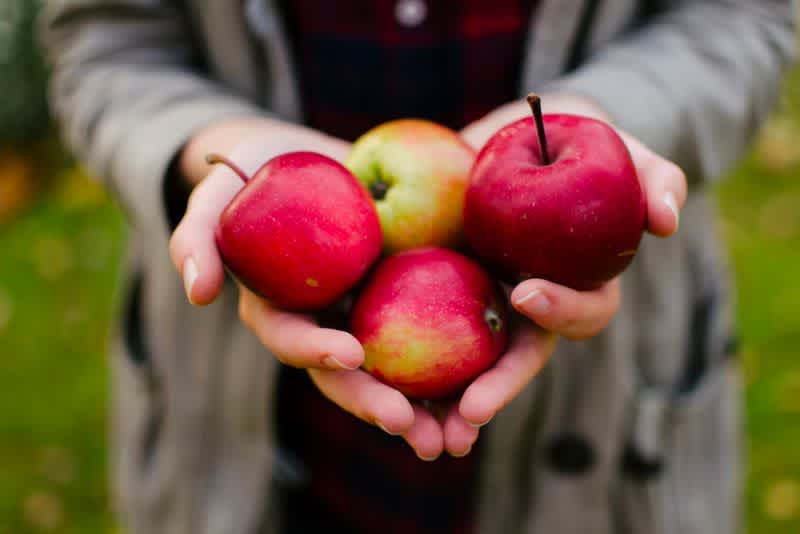
To enhance the nutritional value of your chicken treat offerings, consider creating a diverse mix by combining fresh bananas with other chicken-friendly fruits and vegetables. Doing so will ensure a wide range of nutrients for your flock, promoting optimal health and well-being.
Some excellent fruits and vegetables to mix with bananas include:
Berries (e.g., strawberries, blueberries, raspberries)
Leafy greens (e.g., kale, spinach, Swiss chard)
Melons (e.g., watermelon, cantaloupe, honeydew)
Apples (be sure to remove the seeds)
Carrots
Peas
Broccoli
When preparing this treat mix, chop all fruits and vegetables into small, bite-sized pieces to make it easy for your chickens to consume. As with bananas, offer these treats in moderation, as they should not replace your chickens' regular feed.
By incorporating a variety of fruits and vegetables into your chickens' diet, you'll provide them with a diverse array of essential vitamins and nutrients and keep them engaged and entertained with new and exciting flavors.
The Don'ts of Feeding Bananas to Chickens
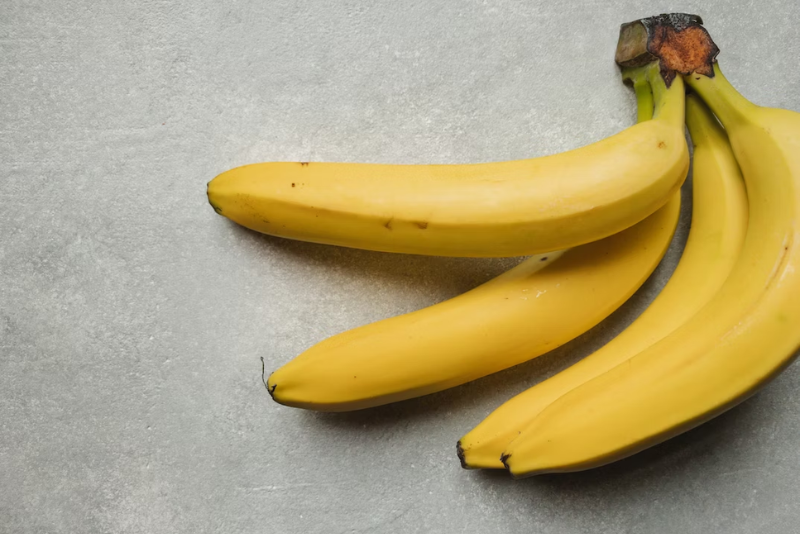
Avoid Moldy or Overripe Bananas
While ripe bananas can be a healthy treat for your chickens, avoiding offering overripe or moldy bananas to your flock is important. Over-Ripened Bananas may have begun to ferment, while moldy bananas can harbor harmful bacteria or fungi that can cause illness in your chickens.
Feeding your chickens spoiled or contaminated fruit could lead to digestive issues, infections, or other health complications. To ensure the safety and well-being of your flock, always inspect bananas before offering them as treats. If you notice any signs of mold, discoloration, or a foul smell, it's best to discard and opt for fresh fruit.
Don't Replace Regular Feed with Bananas
While bananas can be a delightful and nutritious treat for your chickens, it's crucial not to replace their entire regular feed with bananas or other treats. Chickens require a balanced diet to maintain their overall health, support strong egg production, and ensure proper growth and development. Their regular feed is specifically formulated to provide all the essential nutrients they need.
Bananas should be offered as an occasional treat, making up no more than 5% of your chickens' daily food intake. This approach will allow your flock to enjoy the benefits of this fruit without compromising their balanced diet.
Don't Feed Large Quantities at Once
Feeding large quantities of bananas, or any treat, can lead to digestive issues and nutrient imbalances in your chickens. Overindulging in treats can cause chickens to consume less of their regular feed, resulting in inadequate essential nutrients required for their overall health and egg production.
Do not offer an entire banana. By being mindful of portion sizes and offering bananas as an occasional treat, you can help maintain the health and well-being of your flock while still providing them with a tasty and nutritious snack.
Don't Ignore Your Chickens' Preferences

Just like humans, chickens have individual tastes and preferences regarding food. It's important to consider their reactions when introducing new treats like bananas. If your chickens don't enjoy bananas, don't force them to eat them. There are plenty of other healthy treat options, such as berries, leafy greens, or other fruits and vegetables we mentioned earlier.
By paying attention to your chickens' preferences, you can cater to their unique tastes and ensure they enjoy the treats you offer. This approach will help keep your flock engaged and satisfied while providing diverse nutritious snacks.
Foods That Should Not Be Combined with Bananas for Chickens
When feeding your chickens bananas, it's important to ensure that other aspects of their diet are balanced and varied. Here are a few foods that should not be combined with bananas:
Sugary Foods: Since bananas are high in sugar, avoid combining them with other sugary treats. This could lead to excessive sugar intake and related health issues.
Processed Foods: Avoid feeding your chickens processed foods. These often contain additives and preservatives that can be harmful to chickens.
Spoiled Foods: Chickens should not be fed any moldy or spoiled food, regardless of what it is.
Signs of Improper Feeding to Watch Out For
Regularly monitor your chickens for signs of improper feeding. Here are some symptoms to look out for:
Diarrhea: If your chickens have loose stools, this could indicate too much sugar in their diet.
Weight Gain: If your chickens gain weight quickly, it could indicate they have been overeating or consuming too much sugar.
Changes in Egg Production: If you notice a decrease in egg production or changes in the appearance of the eggs, this could be a sign of dietary issues.
Changes in Behavior: Watch for changes in your chickens' behavior, such as decreased activity, lethargy, or unusual aggression. These could be signs of health problems related to diet.
If you notice these signs, consider adjusting your chickens' diet and consult a veterinarian if necessary.
Conclusion
Feeding your chickens can be more than just a routine task; it can be an opportunity to provide them with variety and nutritional benefits. As we've discovered, bananas can be a wonderful treat for chickens when offered in moderation. They provide essential nutrients such as potassium, magnesium, and vitamins B and B6. However, due to their high sugar content, they should not constitute a large portion of a chicken's diet.
Remember that balance is key. While bananas can be a tasty and beneficial treat, chickens also require other foods to meet their nutritional needs. Overfeeding bananas, or any other treat, can lead to health issues, including weight gain and digestive problems.
Pay close attention to your chickens' behavior and health, especially when introducing new foods into their diet. Signs such as changes in egg production, weight gain, or behavioral shifts could indicate a problem with their diet. If you notice any of these signs, it may be necessary to reassess their dietary intake and consult with a veterinarian.
In conclusion, bananas can be a part of your chickens' diet, provided they are given in moderation and as part of a balanced diet. So, the next time you have some ripe bananas that you don't know what to do with, consider sharing them with your feathered friends. They'll appreciate the treat, and you'll be satisfied knowing you're contributing to their overall well-being.
Keep track of all your cattle with the #1 Cattle Management Software
Try out Ranchr today for free